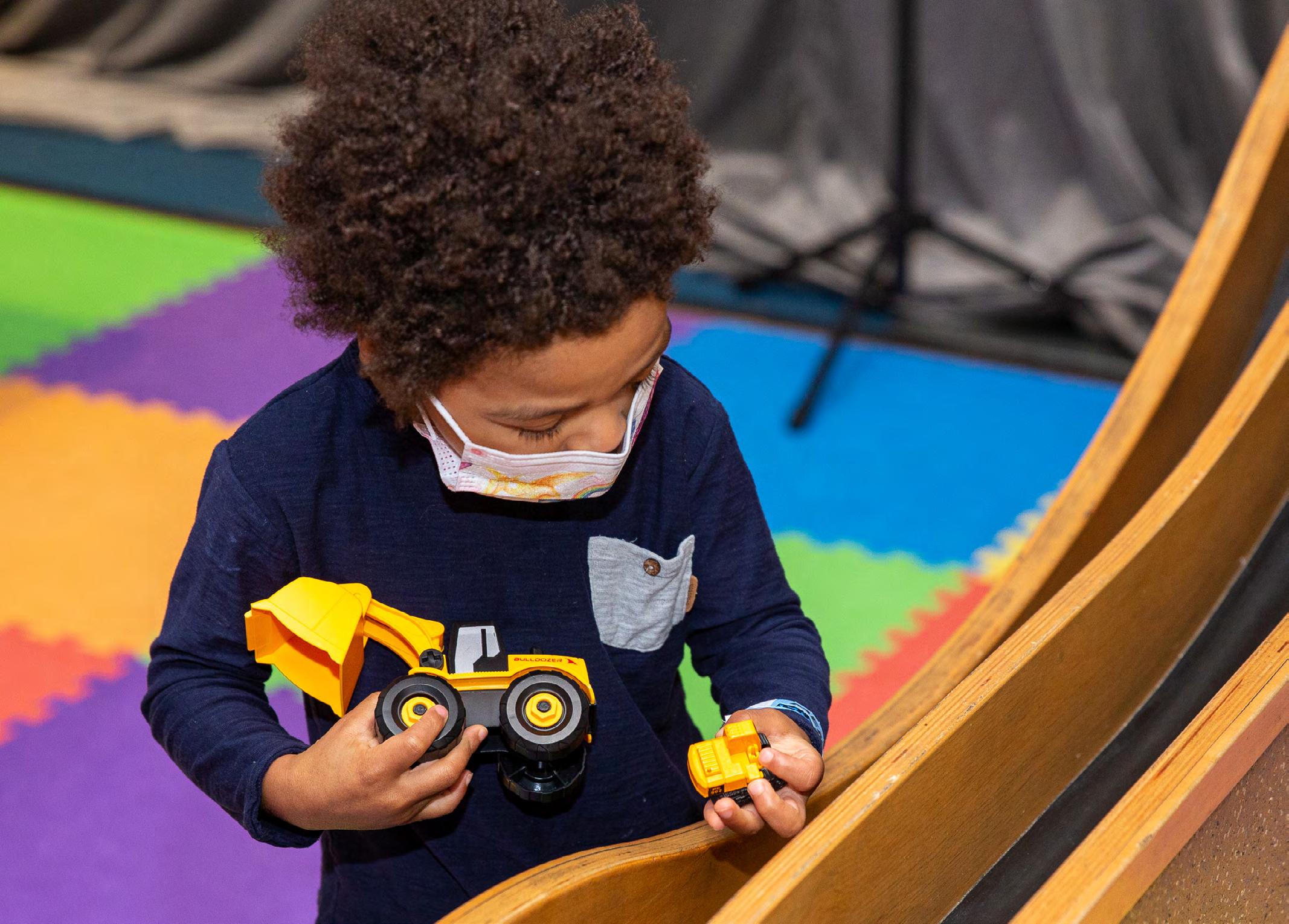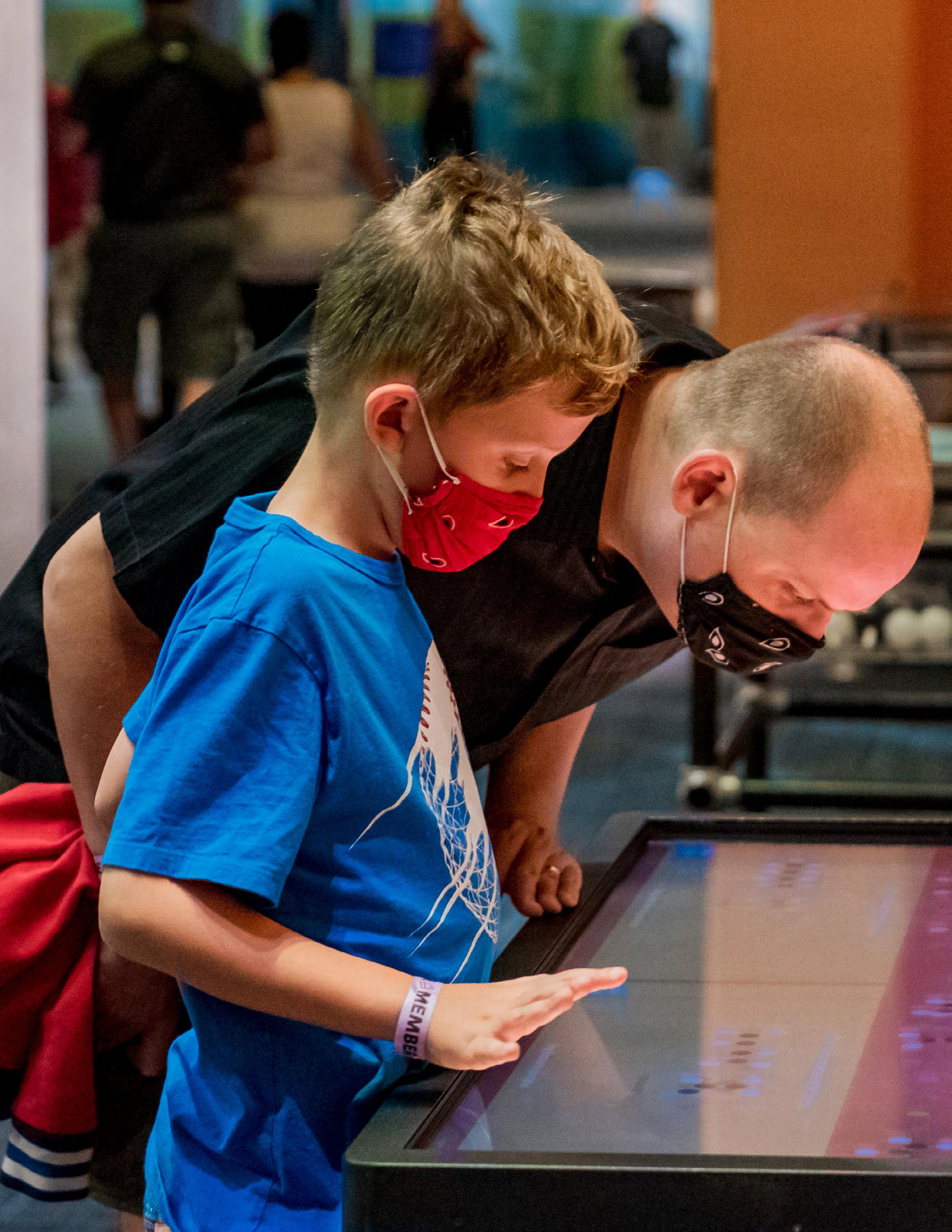
2 minute read
and Application
Rain, Rain, Go Away! 30-45 Minutes Science On a Sphere Program At LSC The six-foot Science On a Sphere will be used to explore causes of our weather and to see how Earth’s weather changes from place to place and with the seasons.
Alignment to NJSLS - Science K-ESS2-1 Use and share observations of local weather conditions to describe patterns over time. Connection to NJSLS - Mathematics MP.2 Reason abstractly and quantitatively. MP.4 Model with mathematics.
Sun, Moon, and Stars 30-45 Minutes • Planetarium Program Online | At LSC Join a tour of the sky for our youngest astronomers! Explore the sun, moon, and stars and discover their patterns, including sunrise and sunset locations, moon phases, and how constellation visibility varies with Earth’s position from season to season. Alignment to NJSLS - Science 1-ESS1-1 Use observations of the sun, moon, and stars to describe patterns that can be predicted. Connections to NJSLS - English Language Arts W.1.8 With guidance and support from adults, recall information from experiences or gather information from provided sources to answer a question.
ENGINEERING, TECHNOLOGY, AND APPLICATION OF SCIENCE
Nothing but Net! 30-45 Minutes • Laboratory Workshop Online | At LSC | At Your School Shoot baskets like a pro! Engineer a catapult designed to push and pull your way toward this goal. Then analyze, compare, and test a friend’s design. There is always more than one possible solution to a problem!
Alignment to NJSLS - Science K-2-ETS1-3 Analyze data from tests of two objects designed to solve the same problem to compare the strengths and weaknesses of how each performs. Connections to NJSLS - English Language Arts W.2.8 Recall information from experiences or gather information from provided sources to answer a question. Connections to NJSLS - Mathematics MP.2 Reason abstractly and quantitatively. MP.4 Model with mathematics. MP.5 Use appropriate tools strategically. Approaches to Learning Persistence, Evaluating and Modifying Plans, Problem-Solving
GRADES 3 - 5

According to the National Research Council, students in grades 3 - 5 engage in a wide variety of scientific practices, including: posing questions, making predictions, designing and conducting investigations, representing and interpreting data, designing models, and making arguments that support conclusions. They can now engage in more complicated forms of measuring and graphical representations. LSC’s programs for grades 3 - 5 introduce simple models that help explain observable scientific phenomena as they directly relate to the NJSLS - Science (NGSS).

